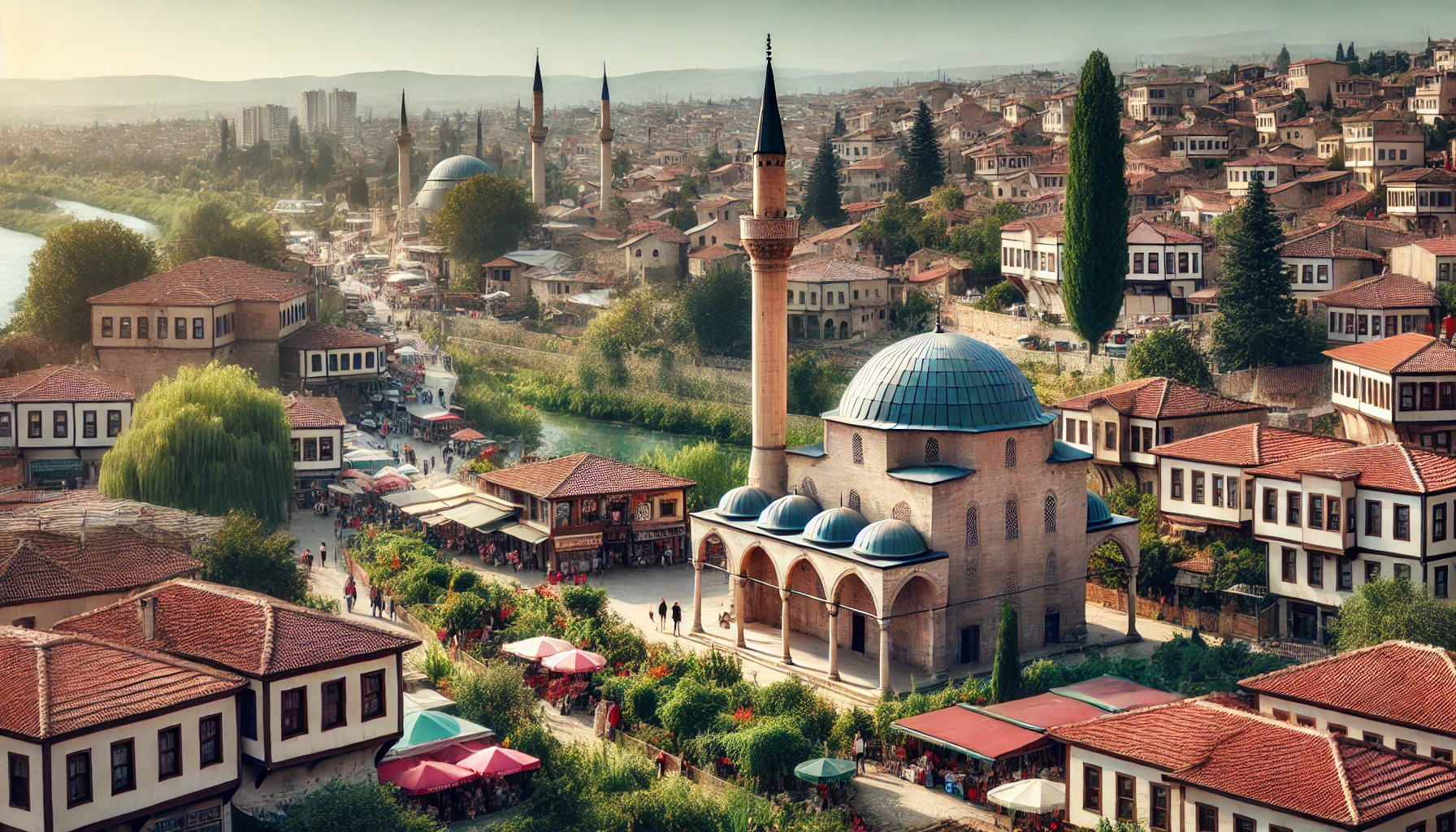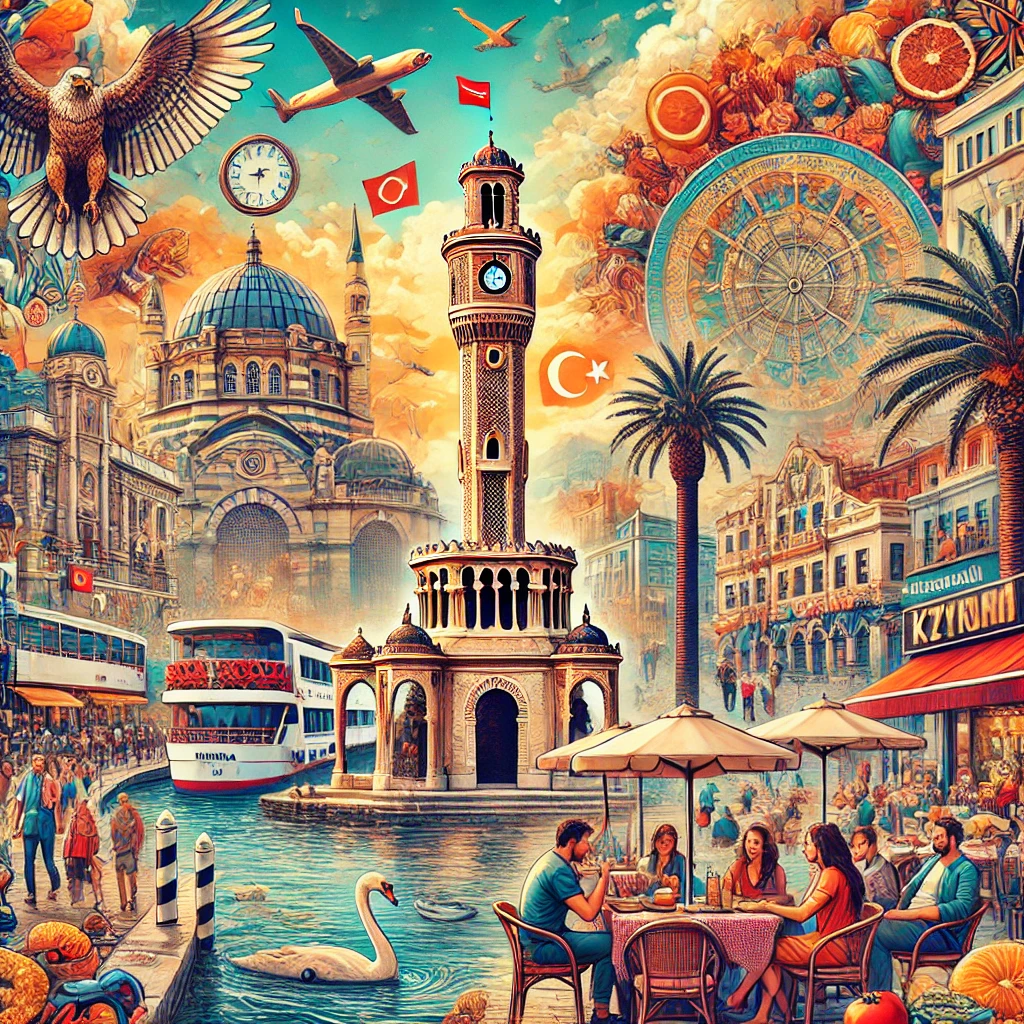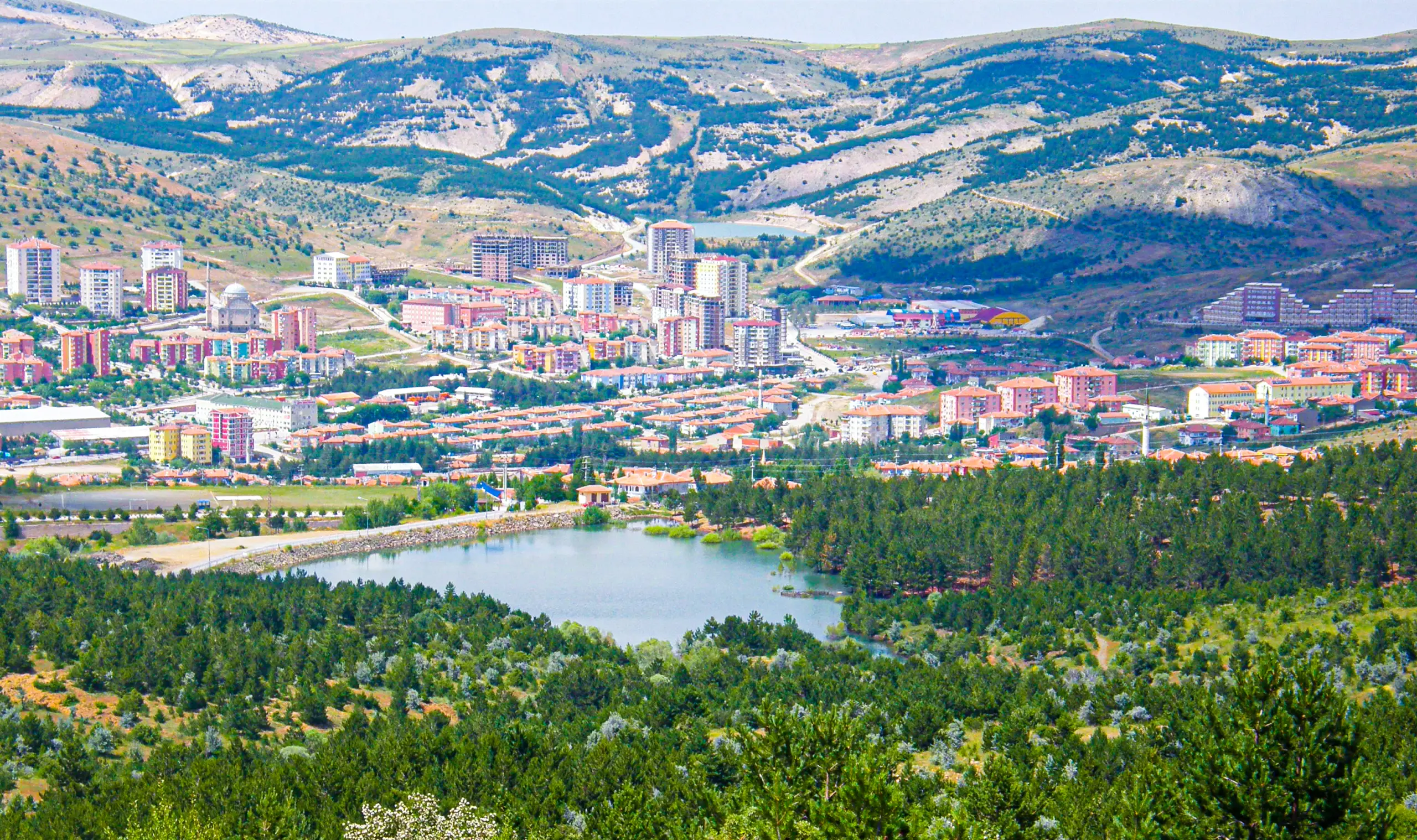Travel & Transport in Turkey
Turkey, a country where East meets West, offers a diverse range of travel and transport options to explore its rich history, stunning landscapes, and vibrant cities. From bustling metropolises to tranquil coastal towns, Turkey’s well-developed transportation network makes it easy for travelers to navigate and enjoy all that the country has to offer. This comprehensive guide will delve into various aspects of travel and transport in Turkey, providing valuable insights for travel enthusiasts planning their next adventure.
Air Travel
Major Airports
Turkey is home to several major airports that serve as key gateways to the country. Istanbul Airport, one of the largest and busiest airports in the world, offers extensive international and domestic connections. Other significant airports include Ankara Esenboğa Airport, Antalya Airport, and Izmir Adnan Menderes Airport.
Istanbul Airport
Istanbul Airport, located on the European side of the city, is a major hub for international travel. It boasts state-of-the-art facilities, numerous dining and shopping options, and excellent connectivity to various parts of the world.
Domestic Flights
Turkey’s extensive domestic flight network makes it convenient to travel between major cities and tourist destinations. Airlines such as Turkish Airlines, Pegasus Airlines, and AnadoluJet offer frequent flights at competitive prices.
Train Travel
High-Speed Trains
Turkey’s high-speed train network provides a fast and comfortable way to travel between key cities. The high-speed rail lines connect Istanbul, Ankara, Eskişehir, and Konya, with plans to expand the network further.
Istanbul-Ankara Route
The Istanbul-Ankara high-speed train is one of the most popular routes, offering a travel time of approximately four hours. The trains are modern, with comfortable seating and onboard amenities.
Regional Trains
For travelers looking to explore less-visited areas, regional trains offer a slower but scenic option. These trains connect various towns and cities, providing a glimpse into the country’s diverse landscapes and local life.
Bus Travel
Intercity Buses
Intercity buses are a popular and cost-effective way to travel around Turkey. The country boasts a comprehensive bus network with frequent services between cities and towns. Major bus companies include Metro Turizm, Pamukkale, and Kamil Koç.
Comfort and Amenities
Modern intercity buses in Turkey are equipped with comfortable seats, air conditioning, and onboard entertainment. Some services also offer Wi-Fi and complimentary snacks and drinks.
Local Buses and Dolmuş
In addition to intercity buses, local buses and dolmuş (shared minibuses) are widely used for short-distance travel within cities and towns. Dolmuşes are a convenient and affordable option, especially for routes not covered by regular buses.
Car Rentals and Driving
Car Rentals
Renting a car is a great way to explore Turkey at your own pace. Car rental agencies are available at major airports and in cities, offering a range of vehicles to suit different needs and budgets.
Driving Tips
- Road Conditions: Turkey’s major highways are well-maintained, but rural roads may vary in quality.
- Traffic Rules: Familiarize yourself with local traffic rules and regulations. Driving is on the right side of the road.
- Navigation: GPS navigation is widely available and useful for navigating Turkey’s diverse terrain.
Scenic Drives
Turkey offers several scenic driving routes, such as the coastal road along the Aegean and Mediterranean coasts and the drive through the Cappadocia region with its unique rock formations.
Public Transportation in Cities
Istanbul
Istanbul’s public transportation system is extensive and includes buses, trams, metro lines, ferries, and the Marmaray (a railway tunnel under the Bosphorus).
Metro and Trams
The Istanbul Metro and tram lines provide efficient and affordable ways to navigate the city. Key lines include the M1 and M2 metro lines and the T1 tram line.
Ferries
Ferries are an iconic part of Istanbul’s transportation network, offering a scenic way to travel between the European and Asian sides of the city. The Bosphorus ferry tours are also a popular tourist activity.
Ankara
Ankara’s public transportation system includes buses, the Ankaray light rail, and the Ankara Metro. The metro network connects key areas of the city, making it easy to get around.
Izmir
Izmir offers a combination of metro, tram, and bus services, as well as ferries that connect various parts of the city along the Aegean coast. The Izmir Metro and Konak Tram are particularly useful for tourists.
Maritime Travel
Ferries and Sea Buses
Turkey’s extensive coastline and numerous islands make maritime travel an important mode of transport. Ferries and sea buses operate along the Aegean and Mediterranean coasts, as well as across the Sea of Marmara.
Popular Routes
- Istanbul to Princes’ Islands: A popular day trip from Istanbul, the Princes’ Islands offer a tranquil escape with beautiful beaches and historic mansions.
- Bodrum to Kos: Ferries connect the Turkish town of Bodrum to the Greek island of Kos, providing a convenient way to explore the region.
Blue Cruises
A Blue Cruise, or Blue Voyage, is a popular way to explore Turkey’s stunning coastline. These cruises, typically aboard traditional wooden gulets, offer a leisurely way to visit secluded coves, ancient ruins, and picturesque villages.
Biking and Walking
Biking
Biking is an increasingly popular way to explore Turkey, particularly in coastal areas and national parks. Cities like Istanbul and Antalya have dedicated bike paths and rental services.
Biking Routes
- Lycian Way: This long-distance trail along the southwestern coast is popular with both hikers and cyclists. It offers stunning views and access to ancient ruins.
- Cappadocia: The unique landscape of Cappadocia makes it an excellent destination for biking, with trails that wind through fairy chimneys and rock-cut churches.
Walking Tours
Walking tours are a great way to explore Turkey’s cities and historical sites. Guided tours offer in-depth insights into the country’s rich history and culture.
Popular Walking Tours
- Istanbul Old City Tour: Explore the historic Sultanahmet district, home to landmarks like the Hagia Sophia, Blue Mosque, and Topkapi Palace.
- Ephesus: A guided tour of the ancient city of Ephesus provides a fascinating glimpse into Greco-Roman history.
Practical Tips for Travelers
Travel Apps and Resources
Several travel apps and resources can enhance your travel experience in Turkey. Apps like Moovit and Trafi provide real-time public transport information, while TripAdvisor and Lonely Planet offer reviews and travel guides.
Language Tips
While Turkish is the official language, English is widely spoken in tourist areas. Learning a few basic Turkish phrases can enhance your travel experience and help you connect with locals.
Currency and Payments
The Turkish Lira (TRY) is the official currency. Credit cards are widely accepted, but it’s advisable to carry some cash for small purchases and in rural areas.
Safety and Health
Travel Insurance
Ensure you have comprehensive travel insurance that covers health, accidents, and travel disruptions. This will provide peace of mind and financial protection during your trip.
Health Precautions
Turkey has a well-developed healthcare system, but it’s important to take basic health precautions. Drink bottled water, be cautious with street food, and protect yourself from the sun.
Sustainable Travel
Eco-Friendly Practices
Embrace eco-friendly travel practices, such as reducing plastic use, supporting local businesses, and respecting natural and cultural sites. Sustainable travel helps preserve Turkey’s beauty for future generations.
Responsible Tourism
Respect local customs and traditions, dress modestly when visiting religious sites, and avoid activities that harm the environment or exploit animals.
Conclusion
Turkey offers a rich tapestry of travel and transport options, making it easy for visitors to explore its diverse landscapes, vibrant cities, and historic sites. Whether you’re flying between major cities, cruising along the coast, or biking through picturesque countryside, Turkey’s well-developed transportation network ensures a seamless and enjoyable travel experience.
By understanding the various modes of transport and practical tips for traveling in Turkey, you can make the most of your adventure in this captivating country. So pack your bags, plan your itinerary, and get ready to discover the wonders of Turkey with ease and comfort. From the bustling streets of Istanbul to the tranquil beaches of the Mediterranean, Turkey awaits with open arms and endless possibilities for exploration.





